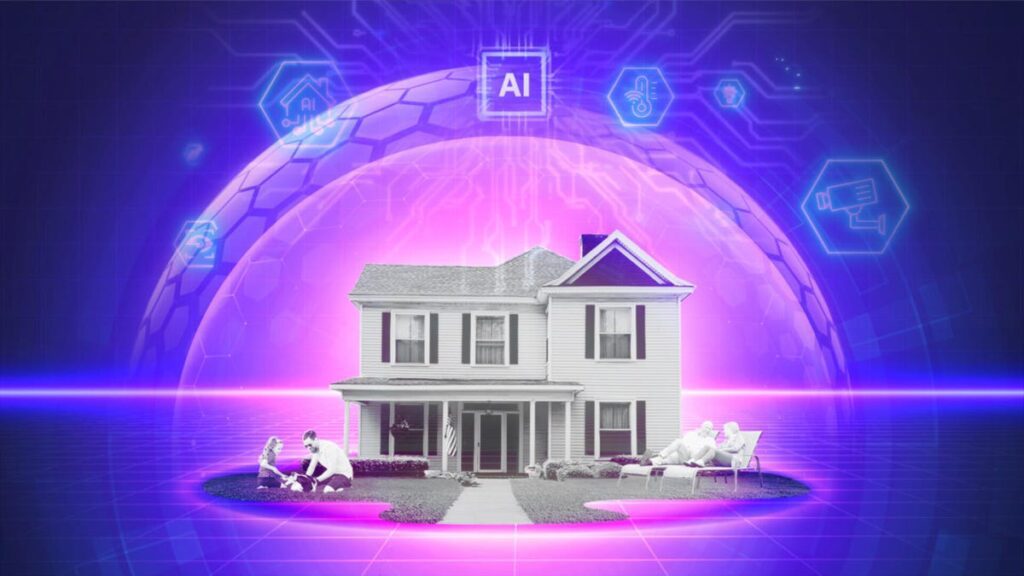Embracing AI in Home Security: A Game Changer for Peace of Mind
Imagine this: you’re enjoying a sunny afternoon in your backyard when suddenly, your phone buzzes with a notification. "Person detected, package detected." It’s your smart doorbell, alerting you to a delivery of pet food and breakfast bars waiting at your front door. But just a minute later, another alert pops up: "Package no longer seen." Your heart skips a beat. Is it a porch pirate?
You quickly check the live feed from your doorbell camera. Phew! It’s just a couple of friends waving at the camera, holding your package. The smart technology has saved you from unnecessary worry — and all thanks to AI-powered object recognition that distinguishes between packages and people.
A Smart Revolution in Security
The Nest doorbell isn’t just a passive observer; it actively informs you about what’s happening outside your home. This level of awareness is a significant upgrade from the old-school security systems that often overwhelmed users with false alarms and endless notifications. Over the years, AI advancements have transformed home security, making it easier, smarter, and more intuitive. After extensive testing, I’ve found these features truly help tackle longstanding security issues.
Wall-to-wall smart cameras, whether from Arlo, Ring, or Eufy, are now equipped with object detection algorithms, ensuring they only notify you about the essentials. This newfound sophistication helps users filter through irrelevant alerts, enhancing the overall home security experience. Research manager Adam Wright from IDC notes, “AI-enabled cameras and video doorbells have driven the continued growth and interest in smart devices, along with their clear value proposition of safety and enhanced capabilities.”
Affordable and Accessible
If you’ve been hesitant because of costs, you’ll be happy to know that this tech is more affordable than ever. Entry-level cameras can be snagged for under $50, while more advanced video doorbells range between $100 and $200. Many AI features come free or for a small monthly fee, making it accessible for everyone — even those residing in townhomes or apartments.
A Stress-Free Security Experience
The intelligent alerts provided by AI help take the edge off. For instance, earlier, every motion would trigger my phone, leading to potential anxiety from false alarms. Now, I receive targeted alerts only about people who seem suspicious. As someone deeply involved in smart home tech as a home security editor, I’ve learned the importance of having control over what notifications I receive, ultimately allowing for a more relaxed state of mind.
Finding AI’s Place in Daily Life
The integration of AI into home security couldn’t come at a better time. With influencers like ChatGPT making waves in the conversation about artificial intelligence, it’s refreshing to see a practical application benefiting our homes and lives. As Joanna Maciejewska humorously noted on social media, the real benefit of AI should help us manage chores, not complicate them.
Home security systems are evolving beyond simple alerts. AI can learn your home’s routines and even adapt to recognize familiar faces. For example, my friend recently set up an Arlo camera, pleasantly surprised by how it harmonized with existing systems, offering crisp visuals and personalized notifications.
Overcoming Privacy Concerns
While the benefits are clear, privacy remains a hot topic. Studies show that one in four users worry about being hacked, while over 60% believe their devices are always listening. However, AI-powered systems provide a more thoughtful approach — delivering essential notifications rather than bombarding you with every minor movement detected.
Adapting security features to filter notifications effectively helps users regain control. With customizable settings, people can receive alerts only for significant events, minimizing distractions throughout their day.
Connecting with Community
If privacy fears still nag at you, there’s also the option of turning to community networks like Ring’s Neighbors app. This feature allows homeowners to crowdsource information, answering questions about suspicious activities or missing packages. It helps foster a sense of community while also ensuring your neighborhood stays informed and safe.
The Data Dilemma
Yet with advancements comes the need for data. AI systems rely on learning from vast amounts of information about your home and habits. Participation is typically opt-in, meaning you control your data’s usage. Companies like Brinks emphasize user privacy, ensuring uploaded videos are for internal use only, not shared with third parties.
The Future of Home Security
As we continue to integrate AI into our lives, features like face recognition are becoming prevalent. Companies are now exploring voice recognition as a privacy-friendly alternative, presenting users with multiple options for personalization.
Balancing technology, privacy, and utility is crucial as we navigate this emerging landscape. While advanced features can spark privacy concerns, they also promise enhanced control over our security environments.
Conclusion
In conclusion, AI is reshaping home security for the better, turning anxiety into reassurance. The improvements in object detection and smart alerts allow homeowners to feel secure and informed without overwhelming them with notifications.
As new features emerge and technology becomes increasingly accessible, it’ll be fascinating to see how quickly these tools become part of our daily lives.
The AI Buzz Hub team is excited to see where these breakthroughs take us. Want to stay in the loop on all things AI? Subscribe to our newsletter or share this article with your fellow enthusiasts.




